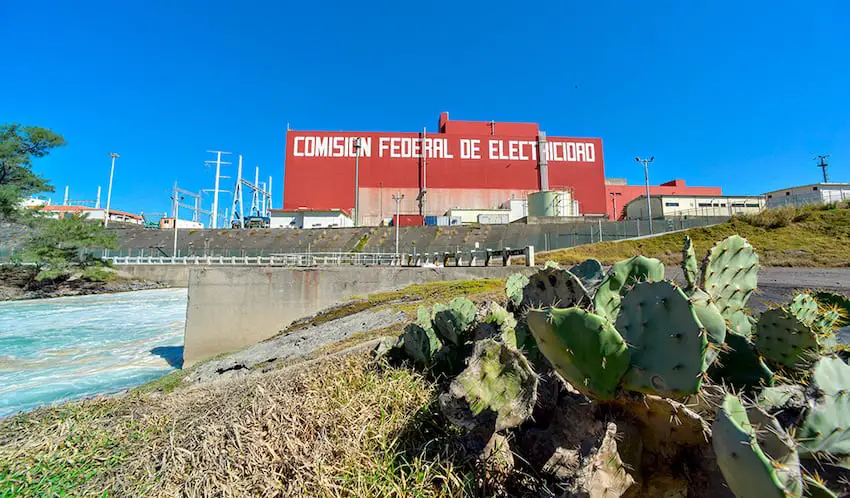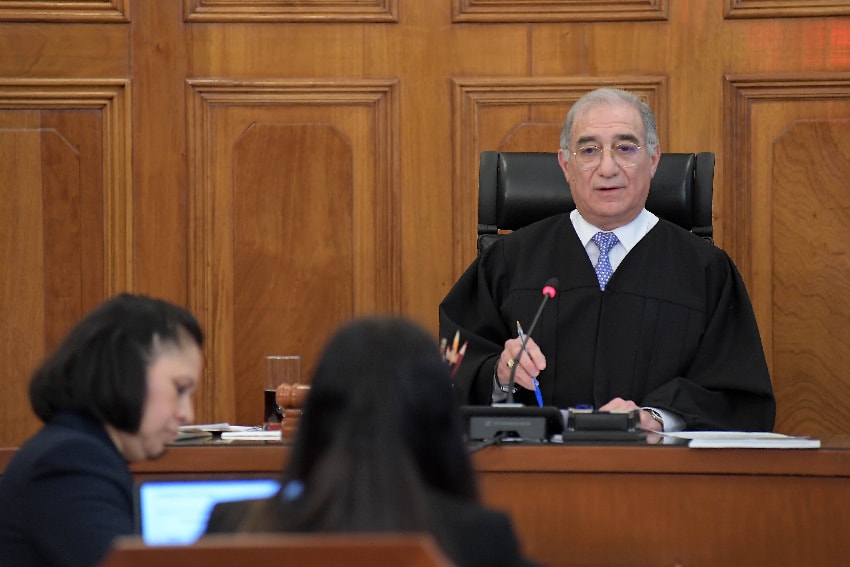The Supreme Court (SCJN) on Wednesday ruled that a law that favors the state-owned Federal Electricity Commission (CFE) over private companies is unconstitutional, dealing a blow to President Andrés Manuel López Obrador’s energy agenda.
Reforms to the Electricity Industry Law (LIE) that gave power generated by the CFE priority on the national grid were passed by Congress in March 2021.

Under the new law, private companies that generate electricity that is often cheaper and cleaner than that produced by the CFE were sidelined.
The order in which electricity was injected into the national grid was previously determined by price, with cheaper power given precedence. Energy companies were required to submit bids in order to place their power on the grid.
The new LIE rolled back key parts of the previous government’s 2013 energy reform, which opened up Mexico’s energy sector to foreign and private companies, ending a state monopoly that lasted for 75 years.
The Supreme Court’s ruling
The SCJN’s Second Chamber considered a request for an injunction against the LIE filed by six energy companies. Two of the chamber’s five justices voted in favor of granting the injunction, two voted against the move and one abstained. Second Chamber president Alberto Pérez Dayán, one of two justices who supported the injunction request, broke the deadlock with a casting vote.
The SCJN said in a statement that the Second Chamber determined that “the order of priority in the dispatch of electricity” as set out in the 2021 Electricity Industry Law violates constitutionally-enshrined principles of free competition in Mexico’s power sector.
Instead of meeting the “efficiency criterion” in the constitution, the government’s secondary legislation prioritizes “state generators (CFE) or plants associated with them, creating an alteration in the electricity market,” the SCJN said.
The court also said that the new LIE disincentivized the production of clean energy in violation of the “principle of sustainable development.”

The Second Chamber “specified that the supposed strengthening of state companies” — López Obrador asserts that his government has “rescued” both the CFE and state oil company Pemex — “is not a reason to ignore the constitutional framework in electricity matters,” the SCJN said.
Although the injunction was granted to just six energy companies, the Supreme Court said that the ruling “will generate the same consequence” for all participants in the wholesale electricity market to ensure a level playing field.
As a result of the ruling, the Electricity Industry Law that was in effect before the reforms were approved in 2021 will once again govern the sector.

Private companies have filed hundreds of applications for injunctions against the LIE, but they have not yet been considered by the Supreme Court.
The SCJN previously considered the LIE in April 2022, confirming at that time that the most important articles of the law could be implemented. Seven of 11 Supreme Court justices held that the LIE violated the right to free competition in the energy sector and hindered the transition to clean energy sources, upholding a federal court ruling that suspended the law shortly after it took effect.
However, their opinions were insufficient to invalidate the law as eight votes were needed for its revocation.
In 2022, the governments of the United States and Canada both launched challenges under the USMCA trade pact against Mexico’s nationalistic energy policies. That dispute has not yet been resolved.
AMLO pledges to challenge the ruling
At his morning press conference on Thursday, López Obrador said he will challenge the process used by the Supreme Court to rule that the LIE is unconstitutional.

At the suggestion of CFE director Manuel Bartlett, he said the government will argue that Justice Pérez doesn’t have the power to decide the matter with a casting vote.
The two justices who voted against declaring the LIE unconstitutional also questioned the legality of Pérez’s use of a casting vote. The Second Chamber’s fifth justice didn’t vote because he served as a federal prosecutor under former president Enrique Peña, whose government proposed the 2013 energy reform.
López Obrador expressed both surprise and annoyance at the fact that the SCJN was able to hand down a ruling against the LIE that was supported by just two justices.
“Just imagine, two justices erase, repudiate, cancel a law — two!” he said.
“Of course, we’ll challenge [the ruling],” López Obrador said before railing against the “judicial power” and repeating his belief that a constitutional reform is needed to “clean up” the judiciary and ensure that it is “at the service of the people” rather than “an oligarchy, a greedy minority.”
Another energy sector reform?
López Obrador also said he was planning to send a constitutional reform proposal to Congress next Monday that is aimed at canceling the 2013 energy reform.
The president intends to submit as many as 20 constitutional reform proposals to Congress on Feb. 5, and he said Thursday that one would be “a modification to the constitution to leave the constitution as it was before the so-called energy reform.”
Most of his proposals are likely to fail as the ruling Morena party and its allies don’t have the two-thirds majority in Congress that is required to make changes to the constitution.
With regard to energy, the plan is to leave the constitution like president Adolfo López Mateos left it when his six year term ended in 1964, López Obrador said.
“How are we going to accept the predominance of private power over public power?” he asked.
With reports from Reforma, La Jornada and El Economista
